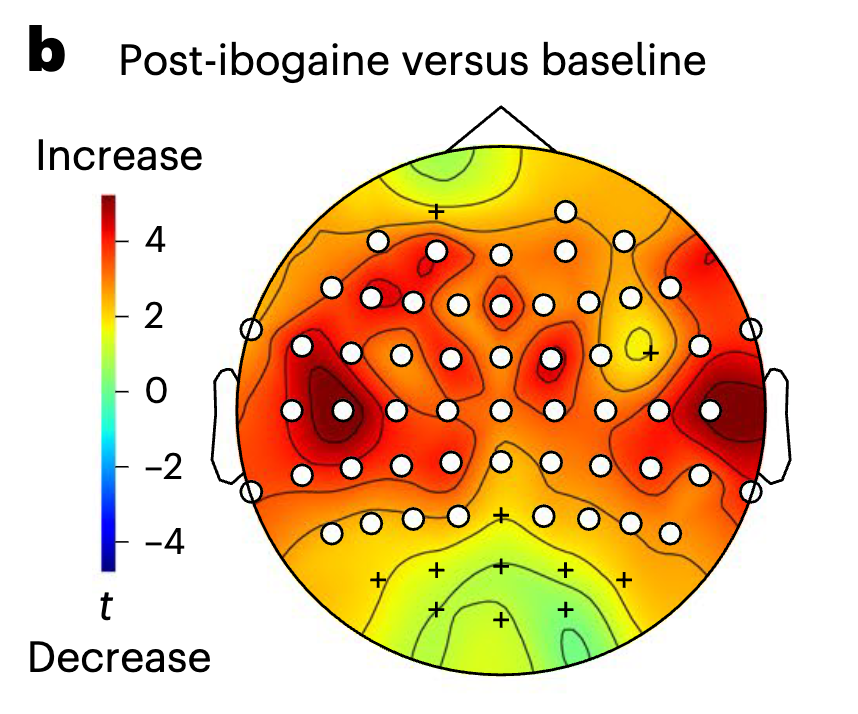Abstract
Traumatic brain injury can lead to chronic psychiatric and cognitive symptoms, coupled with changes to the nature of cortical oscillations and neural complexity. Treatment with magnesium–ibogaine was recently found to improve the sequelae of traumatic brain injury, yet the effects of ibogaine on human cortical oscillations and complexity are unknown. Resting-state electroencephalography was performed prospectively before, 3.5 days after and 1 month after magnesium–ibogaine therapy in an observational, open-label study of 30 combat veterans. We assessed the effects of ibogaine on cortical oscillations and complexity and how these neurophysiological effects relate to psychiatric and cognitive outcomes of ibogaine treatment. After treatment, slower oscillations (theta–alpha) increased in power, and power at higher frequencies (beta–gamma) decreased. Accordingly, the theta/beta ratio increased post-treatment, which correlated with improved cognitive inhibition. Peak alpha frequency and neural complexity were lower after treatment, which persisted at 1-month follow-up. These neurophysiological markers correlated with improved executive function, post-traumatic stress disorder and anxiety after ibogaine. Altogether, these findings suggest reduced spatiotemporal complexity of brain activity and ‘slowing’ of cortical oscillations in the brain at rest after magnesium–ibogaine therapy, which may relate to psychiatric and cognitive improvements after ibogaine, thus providing key insight into the effects of ibogaine on brain function in humans. Follow-up controlled clinical trials are needed to confirm the findings from this initial single-arm trial.
